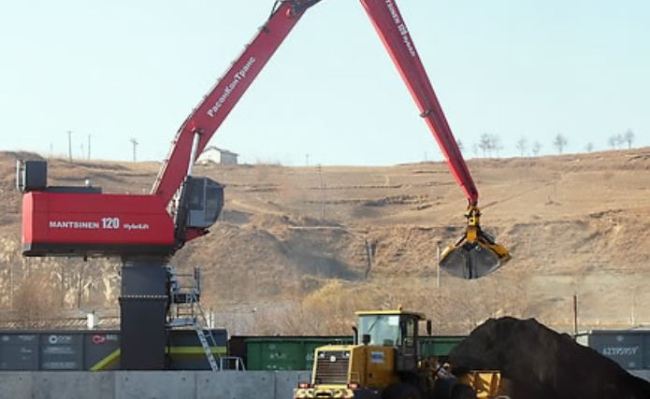Two ships suspected of having carried North Korean coal to South Korean ports in October last year were found to be operated by Chinese companies, as South Korean authorities investigate the alleged shipment in violation of United Nations sanctions.
According to safety inspection data published by the Port State Control Committee in the Asia-Pacific region, the Panama-registered Sky Angel, which shipped about 4,000 tons of North Korean coal to the port of Incheon on Oct. 2, was operated by Dalian Sky Ocean International Shipping Agency. Its address is in Zhongshan district in Dalian, China. Sky Angel changed its flag from Panama to Vanuatu in April this year.
Another vessel, the Sierra Leone-registered Rich Glory, which carried about 5,000 tons of North Korean coal to the port of Pohang on Oct. 11, was run by Sanhe Marine, inspection data showed. Sanhe Marine is registered in Hong Kong, but operates out of Dalian.

(Yonhap)
The annual UN sanctions committee report summited by a panel of experts showed that North Korean coal was transported from the North’s ports of Wonsan and Chongjin to the Russian port of Kholmsk on six occasions between July and September last year. The coal was unloaded there and reloaded onto the two vessels which took it to Incheon and Pohang in October, according to the report.
The two vessels came back to South Korea to undergo safety inspection in February, when the ships were already under suspicion of having carried North Korean coal. Rich Glory entered Incheon on Feb. 20, and Sky Angel arrived at Gunsan on Feb. 21, but they were not interned.
A Foreign Ministry official said on condition of anonymity that there was no solid evidence to intern the two vessels and an investigation is underway by relevant authorities to find out whether the coal was actually from North Korea, whether the local trader had intended to import North Korean coal and whether the cases were in violation of customs laws and UN sanctions.
The UN Security Council imposed sanctions on North Korea in August, banning exports of coal from the North along with other minerals to cut off an important source of foreign currency Pyongyang needs to fund its nuclear weapons and missiles programs.
Seoul and Washington remain committed to implementing the sanctions against North Korea, but critics warn against a possible crack in the sanctions regime amid the ongoing engagement with the North over denuclearization.
There were other reported cases in which South Korean authorities captured foreign ships suspected of transferring items that were banned under international sanctions to North Korea.
South Korea detained a Hong Kong-registered ship -- Lighthouse Winmore -- suspected of transferring as much as 600 tons of oil to the North Korea-flagged vessel at Yeosu port in late November. In December, it also seized a Panama-flagged vessel suspected of transferring oil products to North Korea at its Pyeongtaek-Dangjin port.
Port State Control is an international regime for the inspection of foreign ships in ports to verify whether ships are operated in compliance with international conventions. Created for a Tokyo memorandum of understanding signed in 1993, it is an intergovernmental cooperative organization on Port State control in the Asia-Pacific region, which consists of 20 member countries including South Korea, China and Russia.
North Korea is one of five observer authorities.
By Ock Hyun-ju (
laeticia.ock@heraldcorp.com)






![[Graphic News] More Koreans say they plan long-distance trips this year](http://res.heraldm.com/phpwas/restmb_idxmake.php?idx=645&simg=/content/image/2024/04/17/20240417050828_0.gif&u=)